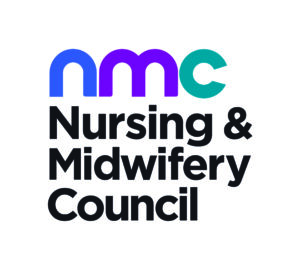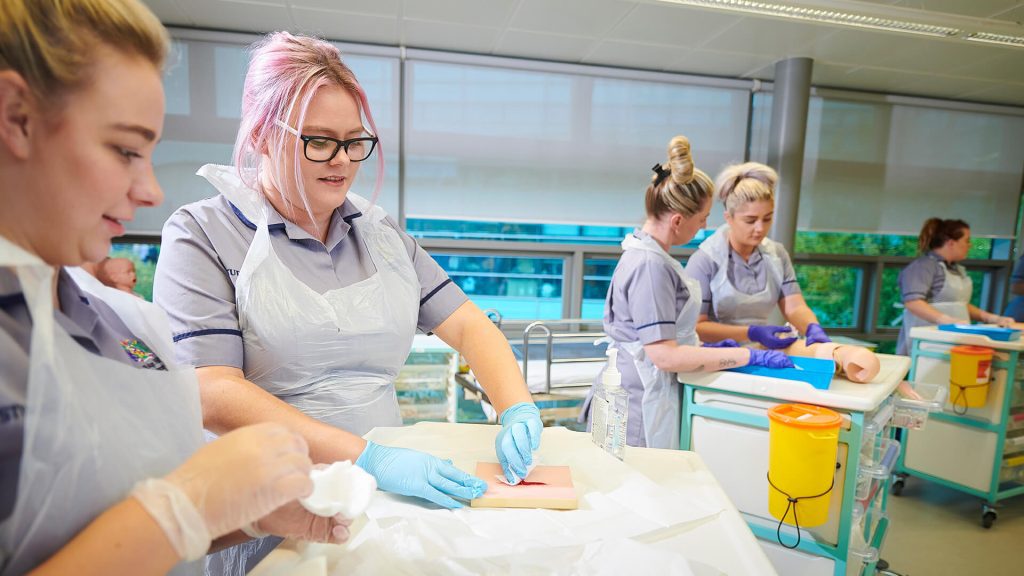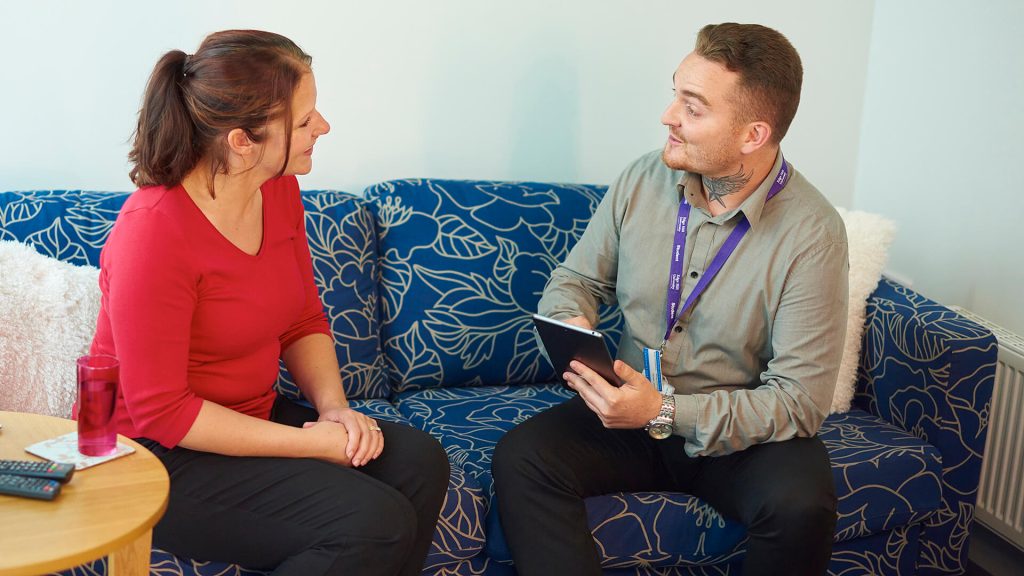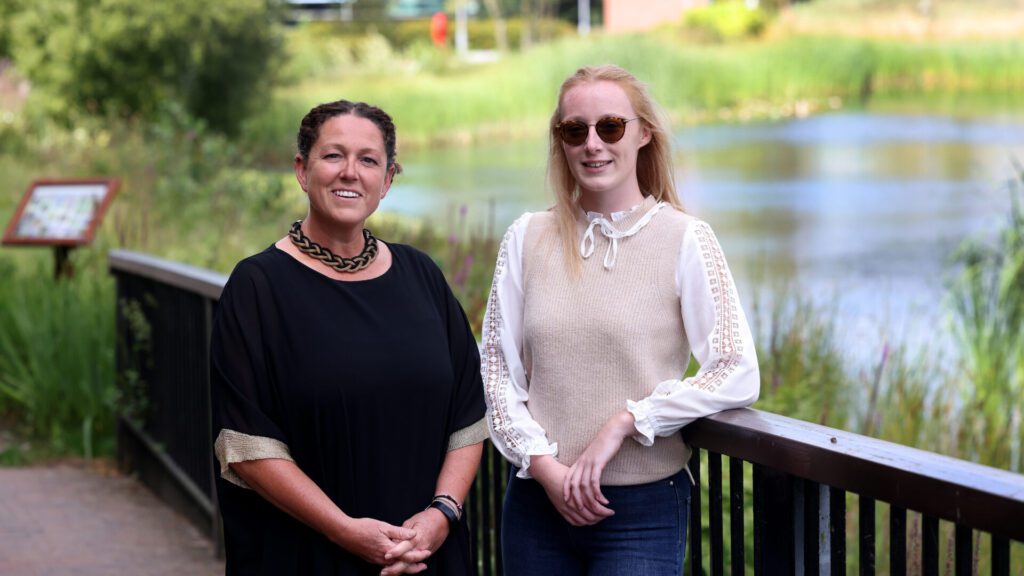Nursing (Learning Disabilities) BSc (Hons)
UCAS code: B761
Do you want to help children and adults with learning disabilities live fulfilling lives? Gain eligibility to register as a qualified learning disability nurse with the Nursing and Midwifery Council.
Overview
| Course length: | 3 years full-time |
|---|---|
| Start dates: | September 2024 September 2025 |
| Location: | Edge Hill University |
| Example offers: | BCC-BBC (A Level) or DMM (BTEC) View full entry criteria |
| Subject(s): | Nursing |
| Faculty: | Health, Social Care and Medicine |
| Department: | Nursing and Midwifery |

Nursing is challenging, and incredibly rewarding. Be a brilliant advocate. Meet health and social needs. Break down barriers. Learning disability nurses work across the lifespan to help individuals to maintain independent living, achieve optimal physical and mental health, and live a fulfilling life. You could play a significant role on their journey.
You’ll deepen your understanding of the needs of those with learning disabilities, as well as your awareness of changes and challenges in the healthcare world.
Learn how to conduct physical, psychological, mental, social and emotional need assessments of adults and children with learning disabilities. You’ll get valuable hands-on experience during simulated scenarios and working placements.
You’ll graduate as a professional and compassionate learning disability nurse. Completing this course means you’ll be eligible to register as a qualified learning disability nurse with the Nursing and Midwifery Council (NMC).

Course features
-
Professional accreditation
-
Professional practice placements
What you'll study
This course adheres closely to the six core values of the NHS. These values, enshrined within the NHS Constitution, have been developed by patients, the public and staff to inspire passion in the NHS, guide it in the 21st century, and provide common ground for cooperation in achieving shared aspirations.
Themes
Adopting a non-modular approach, the curriculum is aligned around three core progressive strands, each of which covers a distinctive year of study.
Year 1: The Foundations of Nursing Practice (120 credits) will empower you with the knowledge, skills and competencies required to deliver safe and effective care. You’ll benefit from a wide range of practical experiences, as well as integrated care delivery, as you discover the theory and application of biological, psychosocial and pharmacological factors. Professional and personal concepts will be studied, as you learn the foundations for the delivery of contemporary nursing practice across the lifespan and through a variety of healthcare settings.
Assessment: In each year, you will be assessed by written coursework, an oral task, a simulated practical exercise and an online time-limited assessment.
While on practice placement, you will be supported in the development of the application of knowledge and skills, leading to the assessment of related proficiencies.
Year 2: Developing Proficiencies for Nursing (120 credits) prepares you to assess a variety of healthcare needs for people of all ages and across a variety of settings. You’ll learn to safely assess, plan, lead and evaluate patient care, as well as undertake an assessment of physical, psychological, social and emotional needs. This includes safe discharge, transition and end of life care. With a focus on working in partnership, we’ll prepare you for your career in an ever-changing health and social care environment. Explore the proactive role of the professional nurse in the provision of health promotion and prevention strategies, whilst gaining the skills and experience to plan and deliver health and wellbeing interventions.
Assessment: In each year, you will be assessed by written coursework, an oral task, a simulated practical exercise and an online time-limited assessment.
While on practice placement, you will be supported in the development of the application of knowledge and skills, leading to the assessment of related proficiencies.
Year 3: Preparing for the Role of the Registered Nurse (120 credits) provides you with the opportunities to develop a critical appreciation of the role of the registered nurse. This will be achieved through a combination of independent and guided learning in which you will develop confidence in assessment, clinical decision making, and the application of a range of related theories to support care delivery. Successful completion of this year of study will enable you to have the confidence and ability to think critically and apply knowledge and skills in the provision of expert evidence-based direct nursing care.
Assessment: In each year, you will be assessed by written coursework, an oral task, a simulated practical exercise and an online time-limited assessment.
While on practice placement, you will be supported in the development of the application of knowledge and skills, leading to the assessment of related proficiencies.
How you'll study
Seminars, lectures, work-based learning and tutorials will be used to deliver this programme. Some modules also include enquiry-based and technology enhanced learning. While the majority of classes will take place at Edge Hill University, some modules may involve studying at sites other than Ormskirk in which case you will be responsible for travel and parking costs.
You will spend 50% of your time in practice which will be undertaken predominantly in community settings within NHS, local authority, independent and voluntary sector organisations. Practice learning environments range throughout the North West and neighbouring geographical areas. This is an extensive area which we would encourage you to become familiar with, as your practice experiences may be allocated from across the whole geographical area, but predominantly within the Cheshire and Merseyside region. You’ll be supported by a practice placement assessor and supervisor.
Placements will include weekend, early morning, evening and night work to ensure access to a full range of practice experiences across 24-hour care. You will be responsible for travel and parking costs while on placement. There is also an opportunity to undertake a practice learning experience outside the region, within the United Kingdom or internationally.
How you'll be assessed
In each year, you will be assessed by written coursework, an oral task, a simulated practical exercise and an online time-limited assessment.
While on practice placement, you will be supported in the development of the application of knowledge and skills, leading to the assessment of related proficiencies.
Who will be teaching you
All lectures are delivered by professionals within the field of nursing as well as specialists in other areas.
The programme team represent a range of qualified, research-active professionals with extensive experience of working within the health and/or social care sector.
Most importantly, service users, carers and their families will be involved in facilitating your learning so that you gain an understanding about the impact care has on individual groups.
Entry criteria
Entry requirements
Typical offer 104-112 UCAS Tariff points, for which no specific subjects are required, plus GCSE English Language and GCSE Mathematics at Grade C or Grade 4 or above (or equivalent).
An interview forms part of the selection process.
If you accept an offer from Edge Hill you will need to satisfy the requirements of the Nursing & Midwifery Council in respect of physical and mental fitness and will be required to apply for a Disclosure and Barring Service (DBS) Enhanced Disclosure indicating that you meet the mandatory criteria of ‘Clearance to Work with Children and/or Vulnerable Adults’. Further information will be sent to you after you have firmly accepted an offer.
Example offers
| Qualification | Requirement |
|---|---|
| A Level | BCC-BBC. |
| BTEC Extended Diploma (or combination of BTEC QCF qualifications) | Distinction, Merit, Merit (DMM). |
| T Level | Overall grade of Merit. |
| International Baccalaureate (IB) | We are happy to accept IB qualifications which achieve the required number of UCAS Tariff points. |
| Access to Higher Education Diploma | 45 credits at Level 3, for example 9 credits at Distinction and 36 credits at Merit or 15 credits at Distinction and 30 credits at Merit. The required total can be attained from various credit combinations. |
Please note, the above examples may differ from actual offers made. A combination of A Level and BTEC awards may also be accepted.
If you have a minimum of two A Levels (or equivalent), there is no maximum number of qualifications that we will accept UCAS points from. This includes additional qualifications such as Extended Project Qualification (EPQ), AS Levels that haven't been continued to A Level, and General Studies AS or A Level awards.
How to apply
Apply full-time
Read our guide to applying through UCAS to find out more about the application process.
International
EU/EEA and Swiss students who have settled or pre-settled status under the EU Settlement Scheme, as well as Irish nationals, are eligible to apply for this course.
Please note this course is not available to other international students. Please see our A-Z of courses for alternative options.
Should you accept an offer of a place to study with us and formally enrol as a student, you will be subject to the provisions of the regulations, rules, codes, conditions and policies which apply to our students. These are available at www.edgehill.ac.uk/studentterms.
If you join a full time undergraduate degree at Edge Hill University, we will guarantee you the offer of a room in our halls of residence for the first year of your course.
Discover our accommodation
Facilities

The Faculty of Health, Social Care and Medicine offers outstanding facilities for the education and training of health and social care professionals.
The contemporary teaching and learning resources include leading edge clinical skills facilities, an 860-seat lecture theatre, and a variety of teaching rooms and social learning spaces.
Where you'll study
Clinical Skills and Simulation Centre
Faculty of Health, Social Care and Medicine
Learning resources
The Clinical Skills and Simulation Centre offers a variety of simulated environments from home, through primary and emergency care, to secondary care and beyond. The flexible and adaptable facilities include a ward environment, operating theatre, an anatomy and ultrasound resource centre, a ‘Better at Home’ suite, clinical skills area and consultation rooms.
You will benefit from access to a wide variety of healthcare equipment, as well as a range of full-body patient simulators that can breathe, talk, have pulses and can simulate a wide range of symptoms and clinical conditions. This will enable you to undertake practical scenarios in realistic settings, providing ideal preparation for professional practice placements and future employment.
Finance
Tuition fees
UK Full-Time
£9,250
a year
EU/EEA and Swiss students who have settled or pre-settled status under the EU Settlement Scheme, as well as Irish nationals, may be eligible for the UK tuition fee rate.
Financial support
Students on this course may be entitled to the NHS Learner Support Fund if eligible. Visit the NHS Business Services Authority website for further information.
Subject to eligibility, UK students joining this course can apply for a Tuition Fee Loan from the Government to cover the full cost of tuition fees. UK students enrolling on the course may also be eligible to apply for additional maintenance loan funding to help with living costs. Please view the relevant Money Matters guide for comprehensive information about the financial support available to eligible UK students, together with details of how to apply for potential funding.
EU/EEA and Swiss students who have settled or pre-settled status under the EU Settlement Scheme may be eligible to apply for financial support. Irish nationals can ordinarily apply to Student Universal Support Ireland (SUSI). Please see our EU student finance page for further details.
Your future career
When you graduate from our nursing degree specialising in learning disabilities, you’ll be eligible to register as a qualified learning disability nurse with the Nursing and Midwifery Council.
Learning disability nurses are found in all areas of health, social care and education, as well as prisons and the criminal justice system. With the skills and knowledge developed through our degree, you’ll be able to support people in roles like:
- community learning disability nurse
- nurse specialist in learning disabilities
- learning disability acute liaison nurse
- positive behaviour support practitioner
- specialist practitioner
Following registration with the Nursing and Midwifery Council, you can search for roles in settings such as:
- residential homes (children and adult)
- supported living accommodation
- assessment and treatment units
- specialist community learning disability teams
- acute hospitals
- criminal justice
- prisons
Some students may wish to specialise with further study. You could investigate career paths for school nurses or health visitors. You may prefer to work as a specialist practitioner, or choose to undertake specific training with CAMHS (Child Adolescent Mental Health Service), such as cognitive behaviour therapy or other therapeutic programmes.
Course changes
Every effort has been made to ensure the accuracy of this information, however our courses are subject to ongoing review and development. Changing circumstances may necessitate alteration to, or the cancellation of, courses.
Changes may be necessary to comply with the requirements of professional bodies, revisions to subject benchmarks statements, to keep courses updated and contemporary, or as a result of student feedback. We reserve the right to make variations if we consider such action to be necessary or in the best interests of students.











